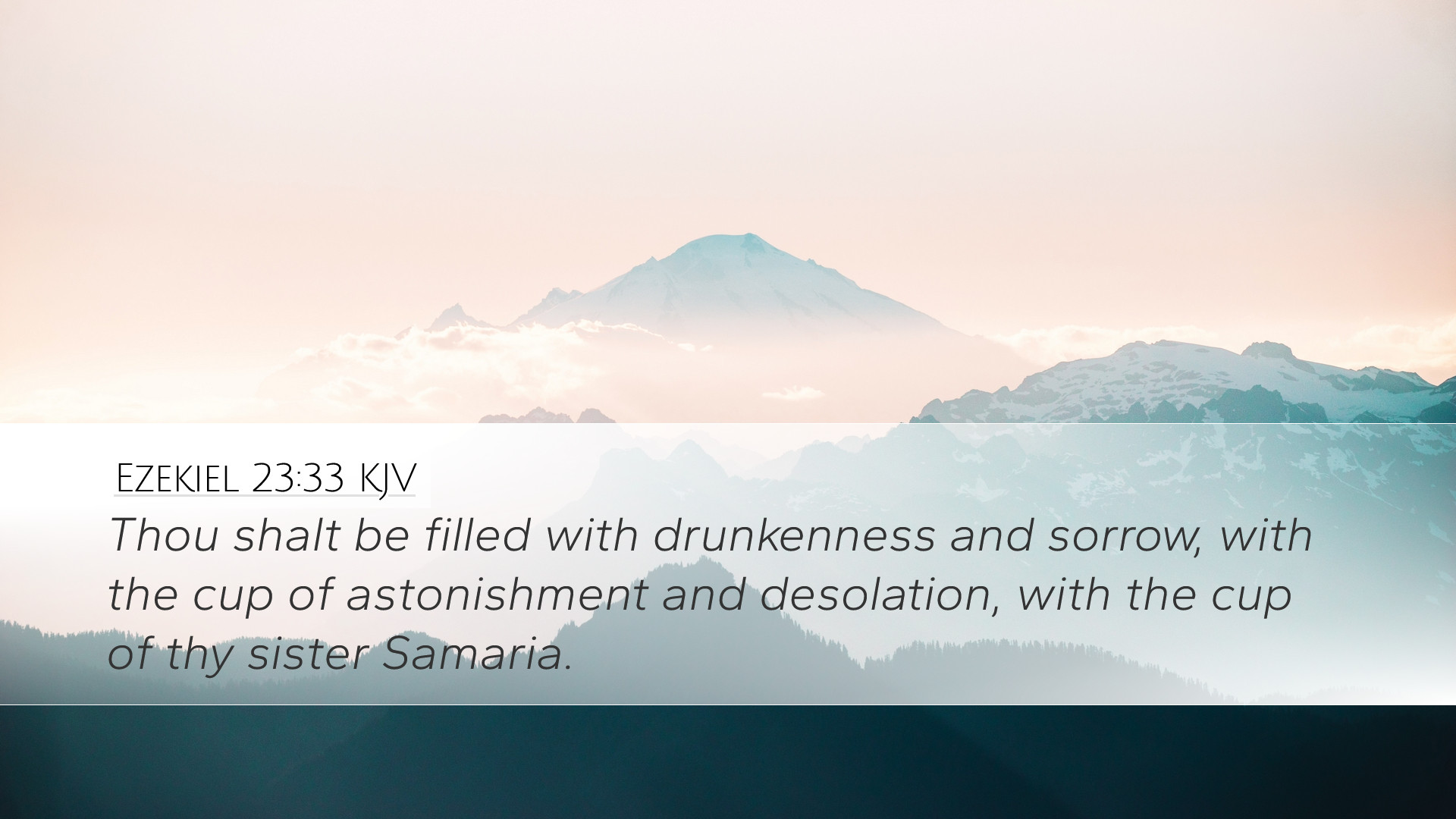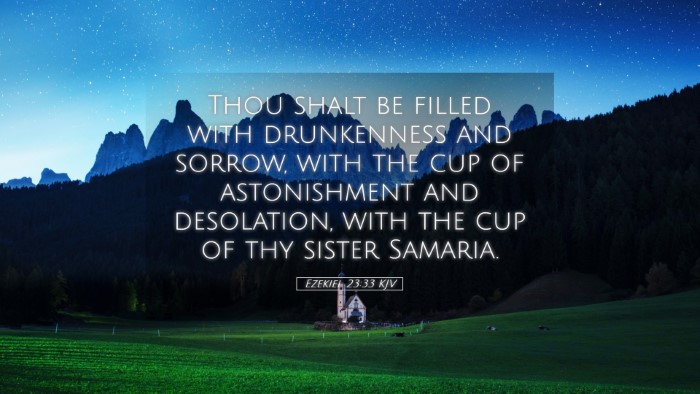Ezekiel 23:33 - A Summary and Commentary
Ezekiel 23:33 (KJV): "Thou shalt be filled with drunkenness and sorrow, with the cup of astonishment and desolation, with the cup of thy sister Samaria."
Contextual Background
The book of Ezekiel is a prophetic work, addressing the Israelites during their Babylonian exile. Ezekiel, as a prophet, communicates God’s judgment against the people and their leaders for idolatry and sin. Chapter 23 specifically personifies two sisters, Ahola and Aholibah, representing Samaria and Jerusalem respectively. Their spiritual infidelity and the consequent judgment of God unveil deeper theological insights into divine justice and human depravity.
Commentary Insights
1. The Nature of Judgment
Matthew Henry interprets this verse as encapsulating the inevitability of divine judgment resulting from unfaithfulness. The “drunkenness” symbolizes a complete loss of control, illustrating how sin can lead to overwhelming despair.
Albert Barnes elaborates that the “cup of astonishment” indicates the shocking realization of the consequences of unfaithfulness. It serves as a grim reminder that the temporal pleasures of sin lead to irrevocable sorrow and devastation.
2. Spiritual Adultery
The passage is steeped in metaphorical language that conveys the idea of spiritual adultery. Adam Clarke notes that the sins of Ahola and Aholibah reflect the gross idolatry of the nations surrounding Israel, highlighting their relentless pursuit of foreign gods, which ultimately leads to their destruction.
This portrayal serves as a warning to Israel, advocating for spiritual fidelity to Yahweh, rather than succumbing to the allure of surrounding cultures.
3. The Imagery of 'Cup'
The imagery of the 'cup' is pervasive in Scripture. Matthew Henry suggests that the 'cup of drunkenness' not only signifies God's judgment but also reflects the overflowing nature of divine wrath poured out upon those who reject Him. This cup is filled with the consequences of their sinful actions, leading to sorrow and desolation.
Albert Barnes points out that the metaphor indicates a systemic decline resulting from engaging in sinful practices reminiscent of the sister Samaria, who faced divine retribution for her ruinous ways.
4. A Call to Repentance
This verse serves as a clarion call for awareness and repentance. Adam Clarke asserts that God’s warnings are meant to provoke introspection among the people of Israel. They are urged to recognize the dire consequences of their actions before it is too late.
The imagery here is not merely for condemnation but also for healing; understanding past transgressions is crucial for seeking restoration.
Theological Implications
The profound implications of Ezekiel 23:33 reach both the historical context of Israel and the present theological discourses. This verse establishes key themes such as:
- Divine Retribution: The inevitability of judgment underscores God's holiness and righteousness.
- Human Responsibility: The accountability for spiritual infidelity lies squarely with the people.
- Hope for Restoration: Despite the darkness of judgment, the call to repentance remains paramount.
Conclusion
Ezekiel 23:33 provides a haunting yet enlightening commentary on the serious nature of idolatry and the consequent divine justice. Through the combined insights of respected scholars like Matthew Henry, Albert Barnes, and Adam Clarke, we comprehend the layered meanings behind this verse. It serves as a crucial reminder for pastors, students, theologians, and Bible scholars alike to explore the depths of spiritual fidelity, the seriousness of sin, and the incredible grace that awaits the repentant heart.


